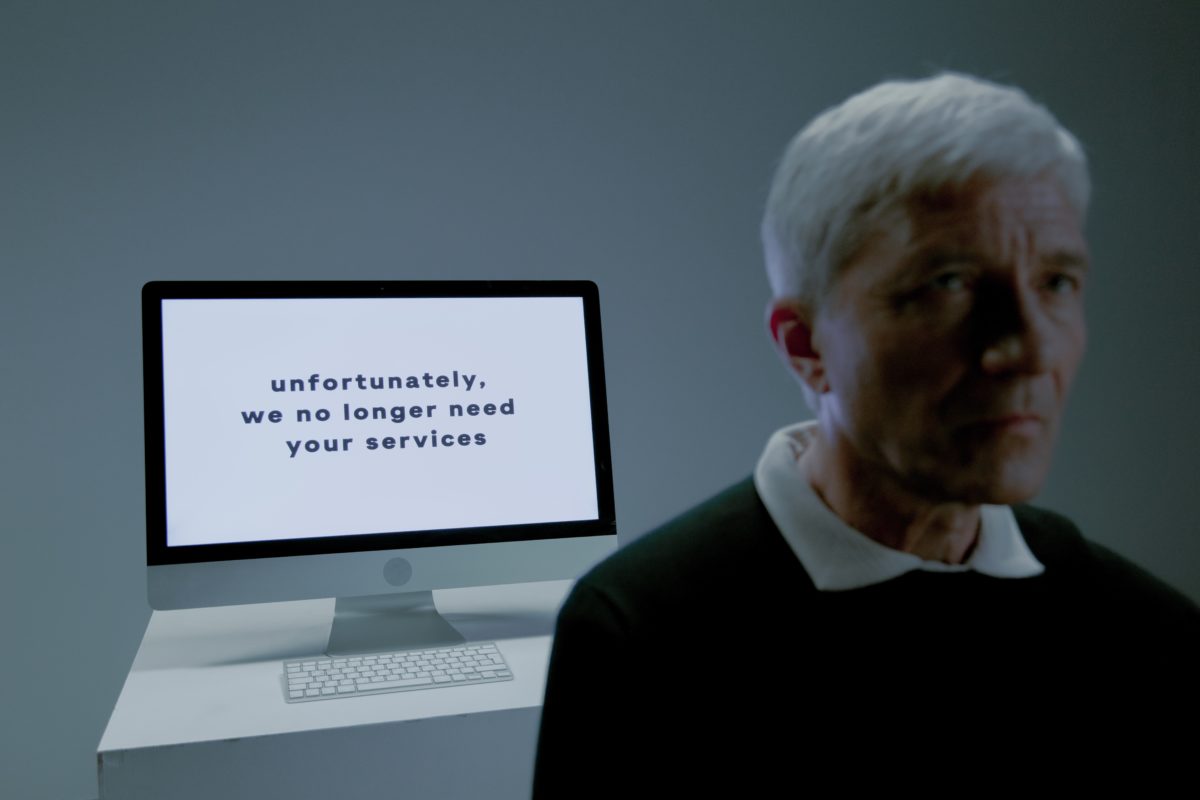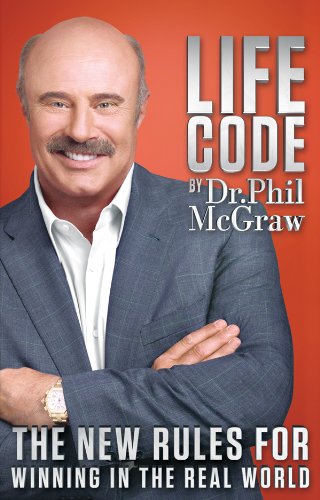“Matters of Experience” Brief Summary:
As a hiring manager, do you hire a potential employee if they don’t have the required experience? And as a potential employee, are you tailoring your resume to look like you have another 20 years of work left? In this Inspired Action For Imperfect Humans podcast episode, Hosts Kyle Kalloo and Christopher Lawrence discuss as a hiring manager why it’s important to be clear with the tasks, and as a potential employee, why it shouldn’t matter how much experience you have, and why it’s important to have a personal brand.
“You need to tailor your resume in such a way that it looks like you have another 20 years left.”
Summary:
- Introduction
- Should you hire someone without experience
- The results of our survey
- The Canadian labour shortage
- Dr. Phil’s “Life Code”
Calls to Action:
Even before the remote workforce evolution, office culture was inherently fragile. After all, it’s made up of imperfect humans interacting with other imperfect humans. And while perfection isn’t the goal, we all secretly wish for a workplace where people find ways to bring out the best in each other. Unfortunately, that’s not always an intuitive skill. It takes guidance, practice, and then more guidance and practice… but with the right leadership, it’s definitely achievable. How do you enhance your workforce’s ability to engage, collaborate, and adapt in this volatile and uncertain reality? Get the answers to your culture questions when you setup a complimentary Discovery Session with Kyle Kalloo at https://ChangeMyLifeCoaching.as.me/?appointmentType=14623413
Not loving your career? Feel you need a change in your job? Let’s Strategize! Book a complimentary Strategy Session with Christopher Lawrence here: https://ChangeMyLifeCoaching.as.me/?appointmentType=14044176
Tell us your “inspired stories” stories by visiting www.InspiredActionPodcast.ca
Christopher Lawrence LinkedIn: https://www.linkedin.com/in/career-life-coach-christopher-lawrence/
Kyle Kalloo LinkedIn: https://www.linkedin.com/in/kyle-kalloo/
Change My Life Coaching & Change My Business Coaching LinkedIn: https://www.linkedin.com/company/6446498/admin/
Looking to create a corporate coaching culture? Reach out to Kyle Kalloo: [email protected]
Website: https://strategicleader.ca
“Matters of Experience” Transcript:
[00:00:00] You need to tailor your resume in such a way that it looks like you have another 20 years of work left. Like, and I hate to say it, but it is the truth. You just need to get yourself in the door and, and then don’t even get me started on these stupid self automated video interviews. What a piece of shit system go is the thought of being imperfect, keeping you from taking action.
Welcome to inspired action for imperfect humans. Each week, we give you real life stories and thought provoking research that inspires your soul to live a more fulfilled life through your own actions from the heart of Calgary Canada. Here are your hosts award winning coaches, Christopher Lawrence and Kyle Kalloo.
Good morning. Good Kyle. Good morning. Good evening. Good afternoon. Wherever you are listening. We had a false start to our podcast this morning because somebody set [00:01:00] off the fire alarm. And that wasn’t me because I didn’t want to do this. Like, that was not me. I just want to go on the record saying I did not do that. Yeah. Why did you jump there so quickly now? I’m suspect. Cause I knew you would be, I wasn’t before, but okay. What do you want to do today? Get this off. I like to just let folks know if you have not subscribed, if you’ve not downloaded, if you’ve not shared our podcasts, what’s up. Where are you at?
Definitely do that. Cause we definitely want to get this information out there. Our goal is to have 10,000 downloads by the end of this season. What are we at now four? Don’t ask that question. Let’s just say the goal is 10,000. By the time we’re actually over 3000, we’re over 3000 and we have four total downloads. No we have 3000.
Anyway, listen, I want us to talk a little bit about something, [00:02:00] um, based off a post that I did on LinkedIn last week. Now I’ve been meaning to ask this question on LinkedIn for a long time. And I think we should engage in a conversation today about that. So many folks seem to have mixed feeling about this particular subject.

You know, when you, let me just set this up a little bit, sometimes when job description, when you put the job description out there, it doesn’t. Always yield the best results, because I believe there’s no real perfect candidate out there. I think it’s a mixed bag of things. Oh, well, sorry. I’m going to interrupt for a second candidates.
Need to remember that too. When, when, when hiring managers and HR post a job description, they’re posting their wishlist so they don’t expect to get it all. So don’t be turned off. Like I look at some of the stuff that’s out there. It’s total garbage. It’s like we’re looking for an admin with a master’s degree in.
Fuck you like get a life. Fuck you. Well, like some of the job descriptions are not even that clear. And I think people can say that, but before we [00:03:00] get into it, cause honestly that actually triggers a point for me as well. But here’s the question that I did. Uh, I asked this question, I asked this question on LinkedIn.
I said, would you hire someone without experience? If they’re trying to transition careers? Would you me? I would, of course I would, because I sit here and I coached the other side of it. And, and between you and me, it’s like, I don’t know, like, I, I think it’s an interesting question. And I also think about, would you hire someone who is five or 10 years away from retirement?
Because I’m sorry. Age-ism is absolutely real. I actually think people are. Likely to hire someone who has less experienced than they are to hire someone who is closer to retirement or who has a lot of experience because they think they’re going to have to pay. I hate this. I hate this one, HR girl. I’m going to find every soap box I can today to stand on girl.
And I’m three soap, I’m three soap box high now, but just give me a second here. I hate this because. [00:04:00] Because HR will decide for you. Like if they think you’re overqualified, they’ll decide for you. If they think you’re going to retire soon, they’ll decide for you. If they think like they will decide for you.

And this is why I encourage people. Like, like, it’s like, it’s like, you might have a body of work, but if you, if you think you’re going to get, um, targeted for ageism, you need to. Uh, you need to tailor your resume in such a way that it looks like you have another 20 years of work left. Like, and I hate to say it, but it is the truth.
You just need to get yourself in the door and, and then don’t even get me started on the streets. It’s a self automated video interviews. What a piece of shit. So I know we said we’re going to go deep, but you already got there. I mean, there’s no buildup on that deep, but let’s just back it out a little bit.
Let me just tell you a little bit about the results and then we’ll talk about what can people, I kind of want to ask you how deep is it, but well, [00:05:00] as you know, there’s a lot of leaders, um, HR professionals and a few others that’s on my network and on LinkedIn. So when I asked that, when I, when I asked that question around, you know, would you, I knew I’d be somewhat talking to hiring managers or people in HR.
And I know you have quite a few HR people too, on, uh, on your LinkedIn profile in your network. And so the results was, and this is almost 200 people actually voted on this. And there’s quite a few comments I think, of over, over about 30 comments or so, um, Added, uh, added some comments as well. And here’s what they said.
So 79% of them said yes, that they would hire someone that was, um, may have some skills gap or not the most qualified for that gig. Um, 5% of them said, no, They would not. And a about 16% said it depends. And some of them left a [00:06:00] comment and I want to read one of those, this comment here. Um, the person said, you know, this is very important questions.
So many people that are in her network are in that situation. The process is often broken around accepting resumes and interview process. So how does one even get a chance? And so this is my thing. It’s almost, I remember when I. Tried to get a credit card. They were like, well, you have no credit history. I was like, well, how else am I going to get a credit history?
If I don’t get credit? Right. Like chicken, how do you gain experience? How do you gain experience if you have no experience? Like, yeah. I, I remember being in that position too. It’s unfortunately, it’s something that, that, that most people who are not just young people, because you could be entering into. Uh, you could be entering a new field or maybe you had a gap for some reason, a four or five years, which happens more frequently than not these days.
That seems like, you know, it’s like, there’s all sorts of [00:07:00] reasons why somebody could be in that position. Maybe there was a stay-at-home parent male or female or, or a non-gendered as well. Cause we have lots, you know, it’s not just women that are staying home anymore. Right. So, so there can be lots of reasons why.
I’d hire that person by the way, I would hire that person in a heartbeat because those people tend to be the best coordinators on the planet. Absolutely. Here’s another comment that I thought was interesting that I didn’t realize until the person said it. Um, this person said many of our careers didn’t exist.
5, 10, 15, 20 years. Yeah. So there’s, there’s been somewhat of a, a warp, I think of careers now out there. And so you kind of have to look at, but how do they get, and you jumped on this, on your soap box earlier is how do you get past some of these ATS things, right. Or these other metrics and other software and other things out there.

So someone could get in front of that person said, listen, although it may look like I don’t have the [00:08:00] experience, I have a network of how I can learn and grow or want to learn and grow. And I’m coachable. That was the other word that came up pretty strong in the comments on the, on the poll is as long as they’re coachable, I would work with someone who’s coachable or malleable any day versus someone who only just have knowledge and skills, but may not be as coachable.
What do you think about. Yeah. I mean, I agree. I, I, yeah, like. You know, I look at the situation and I’m just like, I think, I think ultimately HR is broken. I think HR people are typically overwhelmed. They have too much to do. They don’t get paid well enough in my, most of them don’t get paid well enough, in my opinion.
Um, I think lots of times they have to do the dirty work. Um, and often already worked well. I, you know, it’s like, like, um, hiring and firing, you know, like, like, oh, you know, I’m going to do 200 layoffs knowing. That 201 is me, [00:09:00] right? Like that. I’m going to be, let go next. Right. You know? So, so the often have to do this, so I feel for them, but HR needs an overhaul.
Like we, we have totally over automated the process. They’re like, like, why are we still calling it human resources? It’s not, it’s not human resources. There’s nothing human about it. Like it’s, you know, we call it people departments, and it’s like, It’s not even that, because there’s a total lack of recognition of someone’s human experience.
So, so when you talk about like hiring someone with no experience, it’s like, well, I mean, there, there’s a point to be made here, but, but you know, you look at where we’re headed in north America, certainly with labor shortages and. And stuff like this. And they expect certainly in Canada that, you know, the BDC said that, that they expect them to last off and on for the next 10 years.
Right. So that brings us it’s 20, 22. Right now that report came out in 2021. I think they’re expecting [00:10:00] them to last until 2031. Like, like, think about that. Like girl, how old are you going to be? 72 by then? You’ll be 76. Um, you know, So, so, so I look at this and I, I find it, I find it, you know, so it’s like, they’re not going to have any choice because you are going to see more body hiring and, and that kind of thing.

I think, I think there’s something to be said. And honestly, I’m so glad it’s going to be an employee market, you know, for a while, because it’s been a long time. Since it’s been an employee market. And I think that bigger companies are going to have to figure things out. It’s not just going to be about pay.
It’s going to be about work-life balance. They are going to have to hire people with no experience. So for me, I’m not as worried about that actually is, um, as, as maybe, you know, w w your suggestion, like. Your reason for doing the poll, which by the way, what was your reason for doing that poll? You know what, [00:11:00] cause I think so many times one, you know, because we do work in different capacity with clients who are either looking for a career change or looking to love their job again, or looking to get something from fulfillment out of their role.
And I work with a lot of the leaders who are looking for that said candidate too. Right? They want someone. Who’s more fulfilled. They want someone who’s going to be engaged in that work. And a lot of times, especially when you see some of these job descriptions either, they’re like you said earlier, this massive wishlist, um, and sometimes there’s nothing in the job description that really talks about the tasks, the things that they’re going to be doing day to day.
And because I have these conversations with some of my clients, there’s a few of them said, oh no, no, they have to meet the criteria. And there’s some of them, speaking of HR, Sometimes they said, I actually don’t even know who else is in the pool because HR scans it already and gives them what they think is the most qualified.
And so I said to one client, but how do you know if the [00:12:00] person with the right attitude, the right drive, the right, the right willingness, have the willingness to do and learn and prosper. How would you know if they came to the table? And he said, I actually don’t know because the four or five names HR puts in front of me meets the job description that he did not create either.
Right. So, so already there’s that disconnect. So in our own practice of having these conversation, I kind of wanted to see what was that network. My network was going to say about it. And because like I said, I do have a lot of HR folks, as well as you know, leaders on there. Interestingly enough. I was surprised by some of the folks who said no, cause I really thought they were quite liberal in their leadership to actually look at what we talk about the whole picture.
And I just thought, but that’s the world we live in though, is that there’s no thinking in shades of gray anymore, right? Like there’s no thinking in shades of gray. I, you know, what kind of light girl we’re going to get [00:13:00] hate mail for this, but I’m actually gonna, um, uh, years and years and years ago. I, uh, started watching

Dr. Phil and so, so I don’t anymore, but, um, he wrote a book called life code. And so there’s some there, I I’m going to go through some of the high level stuff, because I actually think that this is, this is what’s important right now for people. No matter. Whether you’re, you have no experience, whether you have lots of experience, whether you reentering the workforce, whatever it is.
But so I won’t take credit for this, certainly, but I think that there’s some really good kind of advice in that book. And so he, he talks about the sweet 16. And the sweet, sweet 16 are rules for winning in the real world. That’s what he says. I don’t like the words real world. Cause it’s like, whatever my experiences is my real world, whether I’m five years old, I’m learning to tie my shoes and the world I’m in.
That’s it. But, but he, what he alludes to is that the world has changed. A lot, [00:14:00] uh, in, in the last couple of decades. And certainly because of the advent of technology, I listened to a really cool, um, Ted talk this morning, um, from a guy in, I think Sweden or Switzerland, unfortunately, I can’t remember. I’ll get the name up here right away.
Um, it’s a. Of course now my phone won’t work. Um, uh, but, but basically what he’s saying is that, is that we get, we get a junk heap of, uh, okay. Here’s, here’s what it is. It’s how to stop your thoughts from controlling your life. And it’s by Albert hope Hobohm. I’m sorry if I’m saying it wrong. H O B O H M and it’s TEDx KTH.
So. Basically what the premise of his talk was is that, you know, it’s, that it’s, that are constantly violated with junk, heap of data, whether that data is what you choose to eat, because [00:15:00]food is information, right? People say food is fuel, but, but that’s an understatement. Food is information. Um, it tells your body how to express itself, um, or.
Um, you know, news headlines or whatever it, you know, his premise is really simple, which is you need to meditate at least four days a week for 15 minutes a day, so that you give your brain space. And the second thing he talks about is be really cautious about what. What junk your brain is downloading every day.
So control your social media control. This control that as you know, Kyle, I might tap into social media once a week may be sort of like I don’t, I don’t really, um, uh, participate in it in my life is so much better as a result of that. It adds zero value the news at zero value because it’s not newsworthy anymore.
It’s just headlines. The news is a business too. Right. So everything’s biased and. Whatever. So, so kind of in that same thing, if you kind of look at [00:16:00] this, you look at, um, giving your brain space and being more clear about what you want. So, so Dr. Phil, in his book, he talks about the sweet 16 and I won’t, um, I won’t necessarily get into all of these.

We’ll see how much time we have. But one of the things that regardless of where you are is that you have to have a defined image. So in other words, you have to know who you are. And never waver from that. Do not define your image as something that you’re, you’re not. So I know that I am both a compassionate person, but I can also get superheated and social justice-y.
I will not define myself as anything, but those, because that is true to form. And then I live within a right, as opposed to trying to be something that I’m not. So another way of saying this, Kyle is like having a personal brand. So whether you’re new to the workforce, or you’re not whether you have experienced or not, you have to have a defined image.
How are you presenting yours? And it’s okay if it changes over time, but, but you have to know who you are walking [00:17:00] into a company right from day one. How are you presenting yourself? Not who do you want me to. You know what I mean? And I think sometimes when someone looks at the company culture or value and all these other stuff, uh, or the job description, instead of saying, okay, I know me, let me see how this works with me or highlights me or ways I can highlight it with me instead of.
Oh, yeah. Yeah. I’m gung ho. I worked great with teams when you done. No, you don’t want to work with people you don’t want to in front of people, like don’t tell people you’re a team player. If you know, you’re not. Yeah. Like I think that, and, and some people are afraid that they’ll get disqualified and I get it.
Like what, when there is job scarcity, you gotta do what you gotta do to survive. Right? Like. That kind of plays into Kyle what the next one is, which is you have to have a perception of uniqueness. So, so basically it’s like, here’s what I’m known for. This is what you’ll get with me that you won’t with anyone else, like, [00:18:00] you know, another way of asking this, I have a great coach and he, he asks me the question all the time.
What are you best in the world out? And I’m like, well, nothing like there’s going to be somebody who’s always better than me at anything. And he said, I disagree. You need to define. Yeah. And so I think that’s really important. What is your uniqueness? What are you bringing in that nobody else is going to have.
And in the interview, find ways to speak to it. Cause you know, I know a lot of people will always say, okay, I looked at some of the questions, I’m trying to answer questions. What are some questions? And I said, no matter what, the question is, find a way that I could communicate my brand. Find a way I could communicate how I can help them solve the problem.
That this job description identifies that needs to be solved, right? No matter what they could ask me. And sometimes there’s some dumb questions. And what you just said is one of the dumb questions I usually hear from HR, the recruiting process of why should we hire you Christopher and not the other candidate?
Right. I’m like, well, I’m not seeing the other candidates. If you want me to help you [00:19:00] with recruiting process, then show me all the other candidates. Right. So what I’m hearing is instead of answering it that way, say, okay, let me tell you about my weakness. Poor HR is taking a beating during this, but it’s just, it’s not their fault.

This is their training been in for, for a long time. Right. It’s very institutionalized. And so, because of that, there’s no new thinking that’s happening anyway. So HR where you’re hearing this, like I said, just stick with us, we’re going to get through it. You know what you’re up against and we’re trying to help you as well.
That’s it? Yeah. Like that’s it. Right? So, or when they ask questions, like I had a client that was. That was, I’m not even kidding you. They S they brought her in for an in-person interview and they said, okay, fill out this form. So she fills out a form, which is like, it’s basically like a handwritten paper interview.
Okay. [00:20:00] And then she says, and she’s all dressed up. And then they hand her another form after that was basically like, Uh, all the grade twos are out for recess. Is it fair to say that a all of the students are out for recess? B only the grade twos are out for recess C and I’m like, what are you hoping to gain?
This was for like a reception position. And I’m like, I’m like, what are you hoping to get? Like what, what is it like, they didn’t tell her what it was. They didn’t say it was a grammar or comprehension test. They didn’t say anything. And then she hands it in and she says, okay. And the woman’s like, yeah. So we’ll get back to you.
No conversation, no interview, no interview. So, so I had this, so I said to her, I said, what would you do in the future? She said, I would have asked first, what is the outcome of these forms before I fill them in? And I said, and then what would you do? She would say, if they weren’t going to meet with me, I would tell them to pull my [00:21:00] application because I’m not interested in meeting with a leader who is an interested in meeting with me.
I’m not, I don’t want to work for someone who isn’t interest in meeting with me by the way. She left there and went and looked at their Google reviews to sort of curiosity. And they were awful. Like it was like one and a half stars. And do you know what most of it was? It was their. It was their front reception staff.
That was what the that’s, what the reviews were about. So, I mean, it’s like, oh, There you go, like you’re not going to hire anyone. Um, so I’m wanting to talk about a couple more of these sweet 16. One of them is actually, so, so of course, you know, perception of uniqueness becoming essential as one. So it’s like, you have to, you have to know what you’re good at.
And then, and then, you know, let them know that it’s like, this is what I do. Make yourself an absolute resource. The next one is actually knowing your real currency. So I think some people, this is so important. Some people attach it to a dollar amount and don’t get me wrong. I know that we all have our dollar amounts because [00:22:00] we all have our dollar amounts because we have, we have financial goals in our life.

All of us do. Right. Even if you’re. Socialists in the true sense of the word you S you still have a currency. So what is that currency? And so, so I think you have to define that well, for yourself, and lots of people will talk about paycheck and it’s like, but beyond the pay, like, what is the paycheck going to do for you?
Right. So, so knowing your real currency, like, I know my real currency, You know, it’s like for me, time is really important. I want to have time to have a full experience on the planet. I don’t, you know, it’s like, I’m not interested in, in working a bunch of overtime and not, you know, whatever it is. I think as a business owner, I do anyway, but part of my, my experiences, like, like the experience I’m having is in that anyway, so that’s good.
Right, right. Um, and they taught, he talks a lot about keeping things close to the vest. So not. Like don’t tell everybody what you’re thinking. Right? Keep some things close to your vest. If [00:23:00]you’re like me, you might need a confidant or two. Um, but I think the idea, and then of course staying in investigatory mood, uh, mood, sorry, uh, investigatory mode.
I think a lot of people don’t do that enough when they’re interviewing, because they’re like, are they gonna hire me? Are they gonna hire me? And it’s like, Um, are you going to hire them? Like, like, are you going to like, is this the organization you want to work for? Can you work with these people when you ask about their leadership style?
Like, I’m sorry. If, if I was in an interview and I had a leader that says, Uh, you know, I say, so tell me about your leadership style. First thing is if they fumble, when they answer that question, cause they weren’t expecting it. I have a problem already. It doesn’t mean I won’t work with them, but it’s like, I’m sorry.
What that tells me is that you haven’t thought about it and defined it for yourself, which is concerning because it means. That’s it, it might mean that you’re a bit haphazard about your leadership style. If you’re unprepared for that question. The second thing that I would say is that if I have a [00:24:00] leader that tells me that it’s like, you know, I’m, I’m really, really hands-off.
And it’s like, well, give me an example of what hands-off means. I just know for me, like I like hands-off, but I know for me, if that means that my leader is virtually absentee, I’m actually not interested in working with them. I need a leader. I can get feedback from you would do better under a leader like that, Kyle, but you’d be able to think through, even though hands-on hands-off leader.
It’s with context because you that’s why you have to have that. Yeah. You have to ask for the example. Yeah, because you can’t, or I have an open door policy. Don’t give me the habitual language. That’s habitual language. Tell me what open door means to you. When you say open door, like Kyle, you have a great example of open door.
Absolutely. You know, one of the things I say about open door policy, it’s not just for them to walk in it’s for you as the leader to walk out because here’s the other thing they’re already intimidated by your title, by your stature, by all these other things that’s [00:25:00] going, even though you think you’re the great guy, great gal, the great most approachable person, blah, blah, blah, people still feel a way about walking through your door and say, Here’s what it is.
Right. And so, I mean, I’m getting the cue as soon as I start talking, he’s telling me, oh no, no, no. I’m watching, he’s telling me to start wrapping it up. I just heard him go through 17 different things. But as soon as I started talking, I give him the, wrap it up. Signal. Let me tell you what actually happens in those moments.
I I’m into it. I’m talking I’m whatever, but of course you guys know that it’s like, I’m the one who hits the record button. I’m the one who sends it to our editor. I’m the one who names it. I’m the one who sets up the meeting in the first place to do this. And I also keep track of the time. But when I’m talking, I’m not looking at the timer.
And so when I start talking, I look at the timer and I’m like, oh, like we’re at 20 minutes right now. So I want to wrap it up. So, I mean, if you took your lion’s share of the responsibility, That’d be [00:26:00] great. I’m saying, is that when you think about situational leadership, you, you can’t, you can’t just say you’re hands-off there isn’t an onboarding perspective because like, you know, Chris would just said feedback is essential, right?
So when we think about. When we talk, you coming back to expectations and people having experiences. There’s a couple of things you can do because we’re not just saying go hire people without experience. There’s a couple of things that you can do in the vetting process. The recruiting process to find out is this person, the ideal person, or what should you be doing, uh, to the table?
So I would say as the employer, HR hiring managers, Number one, be clear with your job description. It’s I see so many job descriptions. That’s not clear, be clear, uh, meaning talking about the tasks, what are the tasks that you really want them to complete? What does that day in the life looks like? And again, what type of a person that you want to fulfill this role characteristics?
Right? You have [00:27:00] to be really clear because if you want someone to be a self-starter, you also want them probably to be a self finisher. So be clear with that, instead of saying, I want someone who could just go and start stuff, and then the person does that, but you weren’t clear. Right. And the other thing too, is I think as the employer, you also have to be able to evaluate their potential for learning.
Right measure and ask them questions about, you know, how can they learn? How can they, you know, do what do they do normally when they’re faced with something that they may not have experience in, give them an opportunity. And I would say for the person being the employee or the candidate share exactly what Christopher just said, share your brand, share how you’re willing to grow and learn and maybe just call.
To the table that, Hey, it may look like it don’t have a lot of experience. It may look, but here’s some things that I know either is transferable or we’ll be able to help in this position. Now, Christopher would you not agree that it’s their responsibility to the [00:28:00] candidate to sell themselves? Or because sometimes they wait for looking at my resume though.
Do they not see, I have transferable skills? Like you got to sell it. Resumes or skimmed at best. A very few, very few HR people have the time to read fully read resumes, resume, especially with ATS systems. Now. Like with the resume scanning software and stuff. We have blogs about the sun changed my life.
coaching.com. You should check them out. Yeah, absolutely. So, as you’re thinking about it, uh, we’re curious to know what you think when it comes to, you know, I know sometimes situation will dictate when it comes. Uh, experiences we’d like to hear about some of your stories. Have you been successful in getting a job or transition to a different career that you did not have experiences, um, you’re with or a lot of experience doing that job and the employers?
What would you tell someone who may not have a lot of experience, um, and, or skillset, you know, how [00:29:00] can they present themselves for you? What are some things that you’d like to hear? We’d love to hear about that. And if you’re not again, Downloaded this sharing this, or it’s just want to share some feedback.
Please do. So we need to hit 10,000 because I don’t need someone as you know, to tell me, you know, your goals are too high. You know, look how it is so far out of that. Like guys help help a brother out. Okay. Download, share this. So we can hit our 10,000 goals until next time take care of, bye it’s our goal to build a global community of inspired action takers, and we can only do that with your help.
So if you love inspired action, please leave a review on your favorite podcasting app and share us on your socials you’ve heard from us. Now we want to hear from you go to inspired action podcast.ca and tell us what is the inspired action you took this week next week on inspired action for imperfect humans, but it’s interesting because I always say it’s like, I don’t want surprises.
If you’re upset about something you need to tell me. And I know [00:30:00] that that can be really hard to do, but I don’t want surprises. I don’t want you to quit this organization or leave this organization and me to find out 10 months later that you hated me as your leader and you didn’t tell me.



